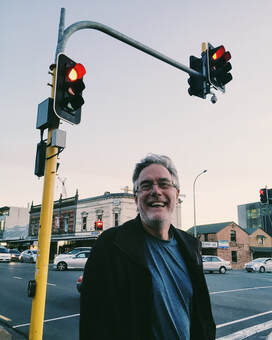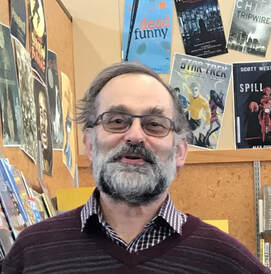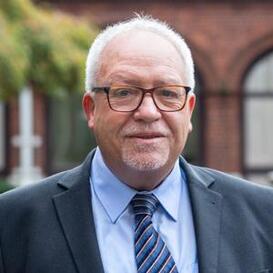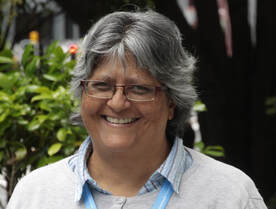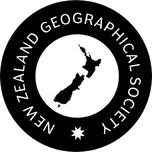KEYNOTE SPEAKERS
Joint Keynote by Tahu Kukutai and Rob Kitchin (zoom)
|
Tahu Kukutai
Tahu Kukutai (Ngāti Tiipa, Ngāti Māhanga, Ngāti Kinohaku, Te Aupōuri) is Professor of Demography at The University of Waikato and Pou Matarua (Co-Director) of Ngā Pae o te Māramatanga Centre of Research Excellence. Tahu specialises in Māori and Indigenous population research and has written extensively on issues of Māori population change and identity, Indigenous data sovereignty, official statistics and ethnic classification. She has undertaken research for iwi, Māori communities, and Government agencies, and provided strategic advice across a range of sectors. Tahu is a founding member of the Māori Data Sovereignty Network Te Mana Raraunga and the Global Indigenous Data Alliance, and is a Board member of Pūhoro STEMM Academy. She has degrees in History, Demography and Sociology from The University of Waikato and Stanford University. She is a Fellow of the Royal Society Te Apārangi. |
Rob Kitchin
Rob Kitchin is a professor in the Maynooth University Social Sciences Institute and Department of Geography. His research examines the production of digital geographies and his present ERC-funded project (2022-27) is ‘Data Stories: Telling Stories About and With Planning and Property Data’. He is the (co)author or (co)editor of 36 academic books and (co)author of over 200 articles and book chapters, and he has delivered over 300 invited talks at conferences and universities. He has been an editor of Dialogues in Human Geography, Progress in Human Geography, and Social and Cultural Geography, and co-editor-in-chief of the International Encyclopedia of Human Geography. He is a recipient of the Royal Irish Academy’s Gold Medal for the Social Sciences. |
Joint Keynote by Meg Parsons and Karen Fisher
|
Meg Parsons
Of Māori (Ngāpuhi), Lebanese, and Pākehā heritage, Dr Parsons is an historical geographer whose research adopts transdisciplinary and decolonising approaches to examine how indigenous communities understand and respond to intersecting processes of social and environmental changes. The majority of her research and teaching focuses on bringing a decolonial lens to theories, policies, and practices surrounding climate change adaptation, environmental governance and management, and sustainable transformations. She is a Associate Professor at the University of Auckland, the co-Editor-in-Chief of Climate Risk Management, the author of more than 50 peer-reviewed publications and was the contributing author to the IPCC WGII Sixth Assessment Report. |
Karen Fisher
(Ngāti Maniapoto, Waikato-Tainui) is a Professor in the School of Environment, University of Auckland | Waipapa Taumata Rau, New Zealand. She is a Human Geographer, whose research is focused on society-environment relations, environmental governance, and the politics of resource use. She is currently involved in several interdisciplinary and transdisciplinary projects that explore the social, legal, and political dimensions of ecosystem-based management approaches to coastal and marine management in Aotearoa New Zealand, Indigenous rights and interests in environmental governance and management, and the intersections between science/Indigenous knowledges and policy in responding to environmental challenges. Recent work considers the relationship between environmental justice and human rights and especially the impacts of colonisation on Indigenous peoples’ rights, values, and interests. |
Joint Zoom Keynote by Paula Satizábal and Kimberley Peters
Drivers of ocean change and governance: Unearthing the violent logics of percentage and target-based marine management
Corresponding author: [email protected]
What is driving changes in oceans, and in turn driving policy changes in ocean governance to provide ‘solutions’ to environmental decline and degradation? The current status quo focuses on biodiversity analyses to measure and assess change, and in turn the success of any management measures. Yet such approaches omit people and socio-political dimensions, even as they note factors such as colonialism (as witnessed in the 2021 Intergovernmental Panel on Climate Change – IPCC report). Such acknowledgements (and they are often just acknowledgements) lack a sustained commitment to understanding the drivers of ocean change, and in turn how this shapes modes of governance. This paper traces drivers to better unearth the violent logics that underscore ocean changes and understandings of them within biodiversity analyses. In turn it upends the assumptions of celebrated percentage and target-based spatial systems of management that result from such analyses, which routinely exclude humans as part of biodiversity. We ask if percentage and target-based management (such as the 30x30 campaign) are necessarily ‘good’ for ‘saving’ oceans facing increased pressures ranging from extractive industries, pollution, acidification, warming, and overfishing or rather, if we need to look again based on deeper understandings of what is driving these pressures – global capitalism and its expanding ocean economy. Can such understandings shift focus from seemingly straightforward solutions, to the violent capitalist projects driving ocean change and ways to dismantle them?
|
Paula Satizábal
Paula Satizábal is a human geographer working at the Marine Governance Group in the Helmholtz Institute for Functional Marine Biodiversity (HIFMB) in Germany. Her research uses a political ecology approach to study how regional political economic processes produce environmental governance institutions, power/knowledge dynamics, and territorial struggles. She is interested in the multiplicity of human and nonhuman relations that produce complex meanings anchored in fluid and marine geographies. She is currently working on law enforcement, criminalisation, and the search for justice at sea. Her research examines marine governance processes focusing on artisanal fisheries and coastal communities. She aims to contribute to more reciprocal, socially just, and sustainable ways of engaging with coastal and marine spaces. She draws inspiration from anti-colonial, anti-racist, and feminist thinkers, seeking to challenge ahistorical spatial configurations and learn from relational and spatialised understandings of justice at sea. |
Kimberley Peters
Kimberley Peters works at the Helmholtz Institute for Functional Marine Biodiversity (HIFMB) a collaboration between the Alfred Wegener Institute for Polar and Marine Research and the University of Oldenburg in Germany. Kim is a geographer by training and whose interests span the sub-disciplines of cultural, political and historical geographies. Her work is often (but not always!) watery. Kim is interested broadly in the governance of non-landed spaces, notably the seas and oceans, but also electromagnetic waves, outer space, and fire. She is interested in how control works in contexts of mobility and how modes of management are spatially and historically embedded. Her oceanic work has explored these themes in examples ranging from pirate radio ships, prison hulks, deep-sea mining to vessel traffic management and the drive to create marine protected areas. She is the author of various articles and book chapters on these topics, as well as the publishing on an area of teaching she is most passionate about: the dissertation. Her books include: The Routledge Handbook of Ocean Space (2022), Water Worlds: Human Geographies of the Ocean (Ashgate, 2014), Territory Beyond Terra (Rowan and Littlefield, 2018) Your Human Geography Dissertation (Sage, 2017); and the monograph, Rebel Radio: Sound, Space, Society (Palgrave, 2017). |
Keynote Panel
Place naming in Aotearoa: A century of the Geographic Board Ngā Pou Taunaha o Aotearoa
|
Robin Kearns is Professor of Geography and Head of the School of Environment at the University of Auckland. He has researched and published across a wide range of themes including the cultural politics of place naming. Robin has been appointed to New Zealand Geographic Board Ngā Pou Taunaha o Aotearoa since 2020.
Michael Roche is Emeritus Professor of Geography in the School of People Environment and Planning at Massey University, Palmerston North. He has published on historical and contemporary aspects of forestry and agriculture in New Zealand, on the development of university geography, and from 2007-19 was member of the New Zealand Geographic Board Ngā Pou Taunaha o Aotearoa. Gerry O’Reilly is Associate Professor in Geography, and International Coordinator for the School of History and Geography at Dublin City University. His research and teaching interests are in geopolitics, political, economic, and cultural geography, sustainable development, and education. Regarding Humanitarian Action and Geopolitics and as Faculty member of ECHO (EU Humanitarian Office) - sponsored NOHA (Network on Humanitarian Action), he was Erasmus Mundus Visiting Fellow at the Western Cape University (2009), Toronto York University (2008) and Columbia University NY (2007). Gerry is Vice President of EUROGEO - EAG (European Association of Geographers). Wendy Shaw has been the Secretary for the New Zealand Geographic Board Ngā Pou Taunaha o Aotearoa for 26 years. The Board is a statutory body of government which processes official place names. The Board aims to ensure that New Zealand’s unique place naming practices, procedures, principles, and policies allow for standardised, consistent, accurate, robust and enduring official place naming decisions. While ever-changing attitudes and expectations pose challenges for official place naming, Wendy’s mahi seeks to recognise cultural heritage alongside practical location identification – on land and on the sea floor. |
CONTACT US
For all queries relating to the conference:
[email protected]
Keep up to date with all the news on our facebook page
[email protected]
Keep up to date with all the news on our facebook page







